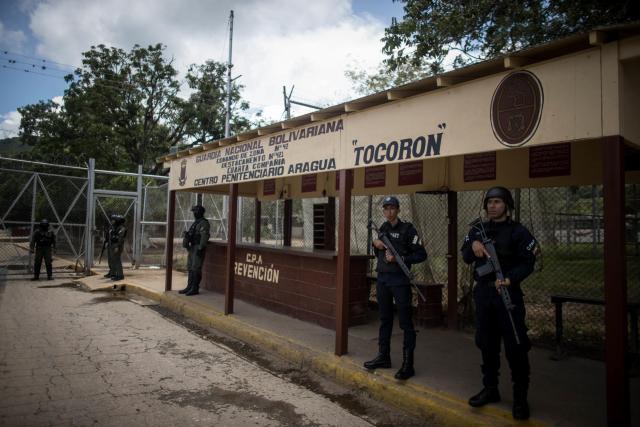
Approximately 900 people are currently being held in the Tocorón penitentiary center, Aragua State, after being arrested in the widespread citizen protests that broke out in rejection of the results of the last Venezuelan presidential elections.
lapatilla.com
The demonstrations that arose in response to popular discontent over what many consider electoral fraud and thus have been subject to repression. this has resulted in the imprisonment of hundreds of citizens accused of terrorism, treason and violating the Law against Hatred, for Peaceful Coexistence and Tolerance.
Relatives of the detainees and various human rights organizations denounce that these people, who exercised their right to peaceful protest, have been transferred to Tocorón for political reasons and are kept in conditions that violate their dignity and basic human rights.
In addition, it was learned that many of the prisoners are in a critical state of physical and mental health, due to the prohibition of family visits and the lack of adequate medical care.
According to the Constitution of the Bolivarian Republic of Venezuela, these imprisonments violate the fundamental rights of citizens. Article 68 guarantees the right to peaceful protest without weapons and prohibits the use of firearms and toxic substances to break up demonstrations.
Likewise, Article 57 safeguards freedom of expression, and Article 23 establishes that international treaties on human rights, such as the International Covenant on Civil and Political Rights legally binds the country, prohibiting detention and repression for political reasons.
In this regard, defenders and lawyers argue that the charges of terrorism and treason are unfounded in this context and only seek to justify disproportionate repression.
In addition, Article 49 of the Constitution establishes the right to due process, guaranteeing that every person must know the reasons for their detention and have a fair trial without undue delays, standards that, they claim, have not been respected in these cases.
Tocorón is sadly known for its precarious conditions and lack of adequate basic services. Since the arrival of these new detainees, relatives and representatives of NGOs have warned about overcrowding, lack of hygiene, as well as the lack of food and drinking water in the prison. This increases the risk of disease and worsens the physical and mental health problems of the inmates.
“They are completely isolated from their families, without access to adequate defense and in conditions that seriously affect their mental health,” said a human rights activist.

